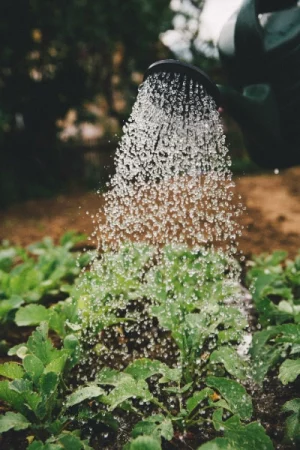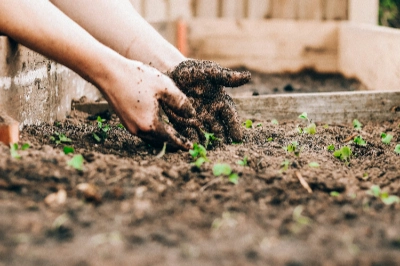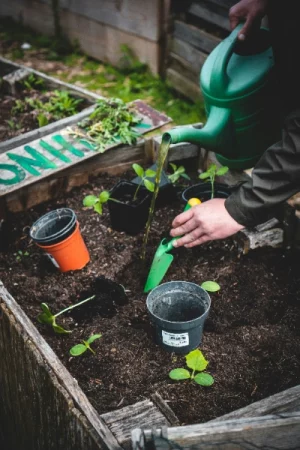Simple Swaps for More Earth-Friendly Gardening in Wrexham
For many Wrexham gardeners, the joy of tending a garden is matched only by the desire to care for the environment. But traditional gardening habits don’t always align with sustainable living. Fortunately, it’s entirely possible to make your outdoor space more eco-conscious without stripping it of personality or productivity.
Adopting a more earth-friendly approach doesn’t require drastic changes or specialist knowledge. It starts with small, thoughtful decisions, like choosing better compost, saving water, and rethinking everyday materials. These simple swaps help reduce your environmental footprint while allowing your garden to thrive in every season.
Why Peat-Free Gardening Deserves Attention
In Wrexham and across the UK, there’s growing awareness about the impact of peat use in gardening. Peatlands take thousands of years to form, and once disturbed, they release carbon and lose their ability to support native wildlife. When peat is harvested for garden products, these important natural spaces are damaged in ways that are often irreversible.
Choosing peat-free alternatives is a meaningful step. Many gardeners in the area now look for composts made from bark, coir, green waste, or wood fibres, all of which work well for local soils and growing conditions. These materials help preserve the integrity of peatlands while supporting healthy, fertile soil.
If you’re unsure where to begin, take a moment to explore AHS Ltd’s range of outdoor solutions. Their peat-free and sustainably sourced options make it easier to garden responsibly without compromising on results or appearance.

Smart Compost Swaps That Still Deliver
One of the simplest changes you can make is to switch to a peat-free compost. Bark-based blends are ideal for improving soil structure and aeration, particularly in areas with heavy or compacted soil. They’re long-lasting, break down slowly, and support root health across a wide range of plants.
Coir compost, made from coconut husks, retains moisture efficiently, which is especially useful during dry spells. Its lightweight texture also makes it a good fit for pots and containers. If you prefer to use locally sourced materials, look for compost made from green waste or wood fibre. These are often created from recycled materials collected at municipal centres, keeping resources within the community.
Using a combination of these composts, depending on the season and your planting needs, gives your garden structure and resilience, while keeping your practices environmentally sound.
How to Spot the Right Products
With so many choices available, knowing what to look for can save time and confusion. True peat-free compost should state this clearly on the packaging. Avoid anything labelled “reduced peat” or “low peat,” as these still contribute to the issue.
Check the ingredients list where possible. A quality product will tell you exactly what’s inside: composted bark, coir, green waste, or a mix. Some composts will also mention whether they’re suitable for pots, beds, or seed sowing, which makes selection even easier.
Over time, many of these sustainable composts offer better performance than traditional peat. They improve soil health and water retention, helping your garden flourish naturally. What’s more, they tend to hold their structure longer, especially in containers, reducing the need for constant replenishment.

Addressing Concerns About Peat-Free Gardening
It’s not unusual to hear concerns about peat-free products. Some worry that these composts don’t support plant growth in the same way, or that they dry out too quickly. In reality, most modern peat-free mixes perform just as well, provided they’re used appropriately.
Matching the compost to the plant and adjusting your watering routine slightly can make a big difference. For example, coir-rich blends hold water effectively, especially when topped with mulch. Bark-based composts are excellent for longer-term soil improvement, and green waste composts feed plants over time.
Suppose you’ve avoided peat-free products because of early issues. In that case, it’s worth giving them another try. Formulations have come a long way, and local gardeners in Wrexham have had great success using sustainable composts in everything from raised beds to hanging baskets.
Broader Garden Swaps That Make a Difference
There’s more to sustainable gardening than compost. Water conservation plays a big role, and Wrexham’s climate makes rainwater harvesting a practical and valuable tool. A simple water butt attached to your guttering can collect enough to keep your garden watered through most of the warmer months.
You can also ditch harsh chemical pesticides in favour of natural deterrents. Planting herbs such as basil, rosemary, and mint adds fragrance and helps keep pests like aphids at bay. Meanwhile, introducing flowers like marigolds and lavender encourages pollinators and beneficial insects.
Mulching is another highly effective technique. Applying a layer of bark or wood chip mulch helps regulate soil temperature, reduce evaporation, and keep weeds in check. These materials break down over time, gradually enriching your soil and reducing the need for fertilisers.
Adapting Your Garden Plan to the Seasons
One of the keys to successful eco-gardening is working with the seasons. In spring, focus on preparing the soil with rich compost and installing rain collection systems. Early planting benefits from added nutrients and protection from unpredictable weather.
Summer is when water use peaks. Use collected rainwater wherever possible, and apply mulch early in the season to help the soil retain moisture. Water plants in the morning or evening to reduce evaporation and stress.

As autumn arrives, take advantage of fallen leaves. These can be gathered to create leaf mould, a useful mulch that improves soil over time. This is also an excellent period for planting shrubs and trees, as roots can establish while the soil is still warm.
Winter brings a natural pause to many gardening tasks, but it’s also a perfect time for planning. Review what worked and what didn’t, and note any materials you want to source in advance for next season. Many retailers offer deals on sustainable products in the off-season.
Make a Greener Choice Today
Shifting towards more sustainable gardening doesn’t need to be complicated or expensive. Start with just one change, whether switching to a peat-free compost, harvesting rainwater, or trying mulch, and build from there. These everyday decisions can protect Wrexham’s natural landscape while giving you a garden to be proud of.
We hope you enjoyed reading “Earth-Friendly Gardening in Wrexham“. Click here for more of our gardening articles.

